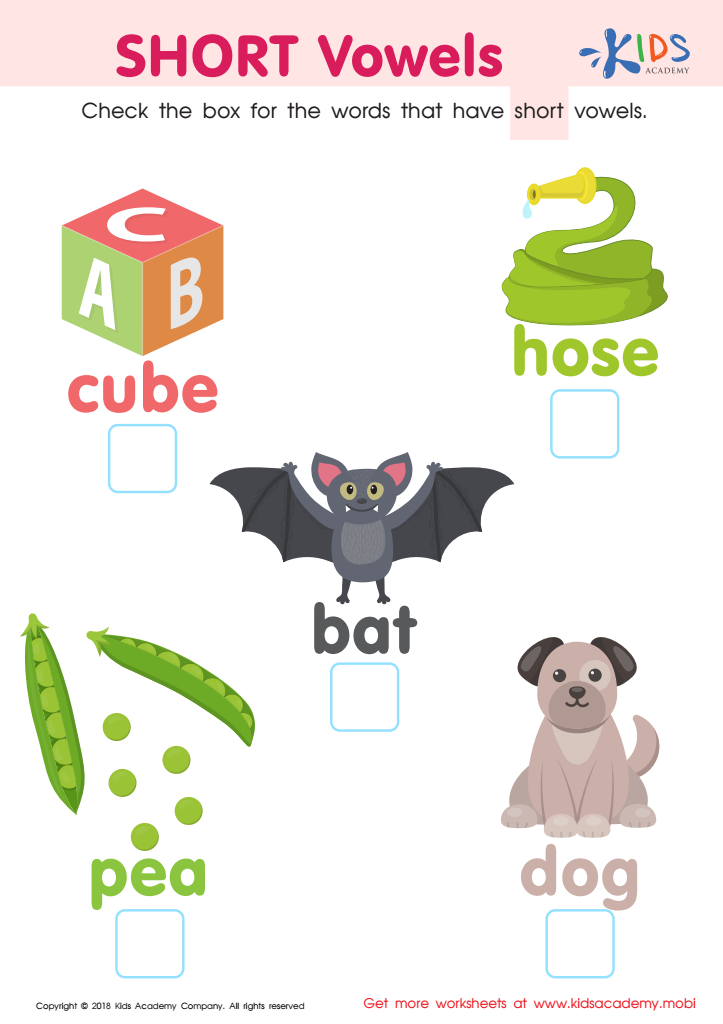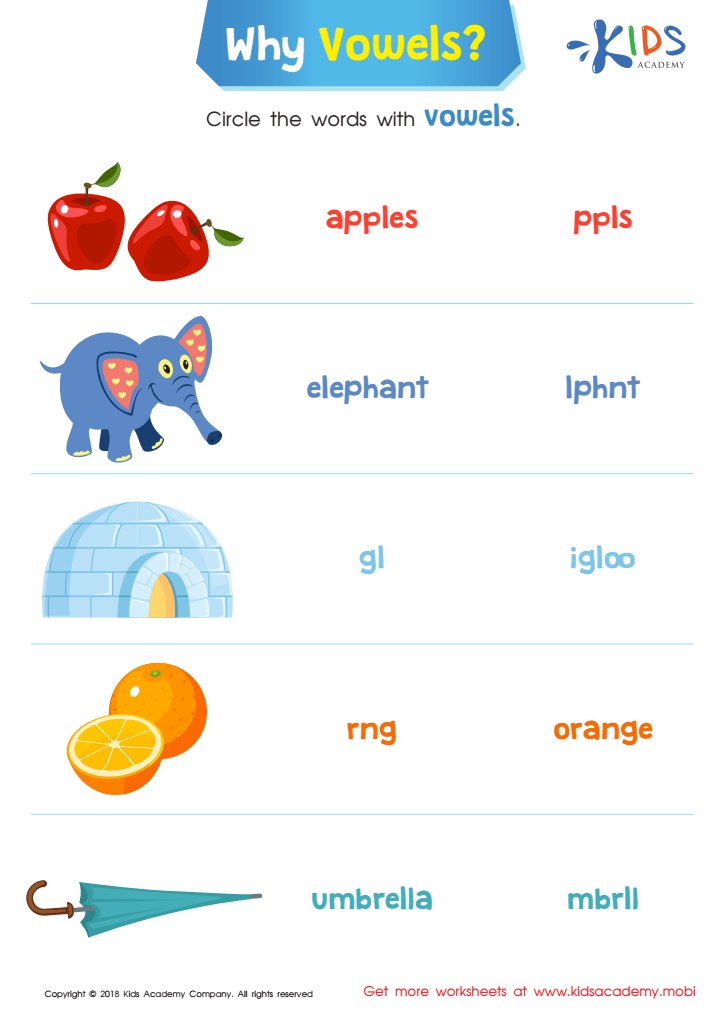Reading comprehension Normal Vowels and Consonants Worksheets for 4-Year-Olds
3 filtered results
-
From - To
Enhance your 4-year-old's reading skills with our engaging Reading Comprehension Normal Vowels and Consonants Worksheets! Specially designed for early learners, these worksheets focus on helping children identify and differentiate between vowels and consonants through fun, interactive activities. Our expertly-crafted exercises will keep young minds entertained while boosting their foundational reading abilities. Perfect for parents and educators seeking to provide quality educational content, each worksheet promotes phonemic awareness, enhances vocabulary, and improves overall reading comprehension. Visit Kids Academy for access to a variety of printable worksheets that turn learning into an enjoyable experience for your little one!


short vowels Worksheet


Vowel and Consonant Sounds: Assessment Worksheet


Why Vowels? Reading Worksheet
Parents and teachers should care about reading comprehension, normal vowels, and consonants for 4-year-olds because these are foundational skills critical to a child's academic and lifelong success. At this age, children's brains are highly receptive to learning language. Understanding vowels and consonants helps children decode words, laying the groundwork for fluency, which is essential for later comprehension.
Early engagement with these basic sound units aids in phonemic awareness, the ability to hear and manipulate sounds. This skill is strongly predictive of future reading success. Beyond decoding, reading comprehension—the ability to understand and interpret what is read—is crucial. Comprehension connects word recognition to meaning, enabling children to store information, follow narratives, and develop critical thinking skills.
When children grasp vowels and consonants early on, they gain confidence, a positive attitude toward learning, and a sense of achievement. This early success fosters a love for reading and learning, encouraging continual educational engagement.
Moreover, early literacy is linked to better overall academic performance and has social benefits, boosting communication skills and empathy. Thus, care in teaching these basics equips children for comprehensive, long-term educational achievements, positioning them for future success. Engaged parents and proactive teachers can make a significant impact on a child's life by prioritizing these foundational elements.
 Assign to My Students
Assign to My Students














